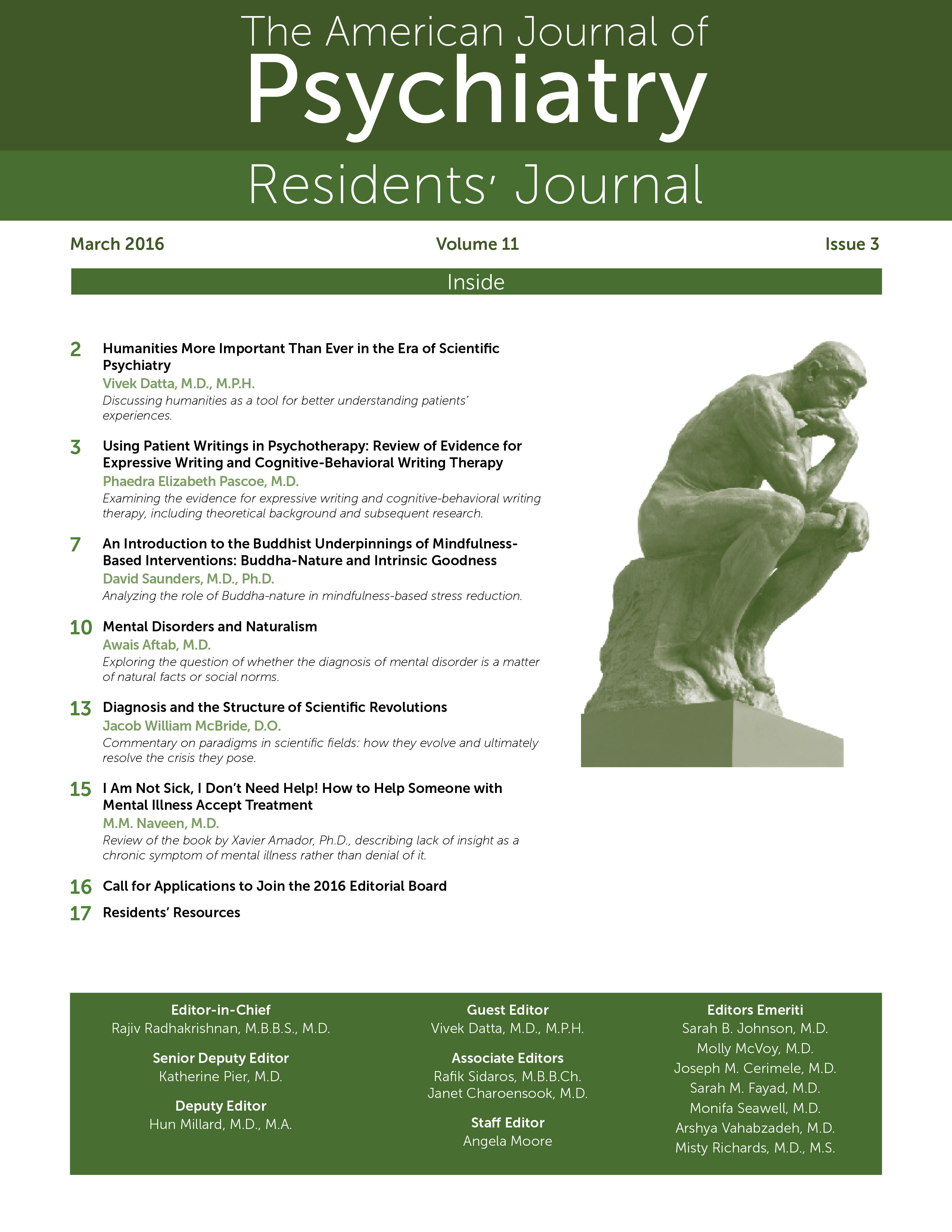We live in the era of scientific psychiatry. We have operational criteria, randomized controlled trials, evidence-based treatments, and a burgeoning research base into the neurobiological basis of mental disorders. We have been completely seduced by the narrow gaze of neuroscience. Technological interventions such as deep brain stimulation and other neuromodulatory treatments have excited the field. Finally, psychiatry appears to have the respectable veneer of science like the rest of the biomedical enterprise. What then is the problem?
Leon Eisenberg said it best: “The success of neuroscience has exacted costs. The very elegance of research in neuroscience has led psychiatry to focus so exclusively on the brain as an organ the experience of the patient as a person has receded below the horizon of our vision …. We have traded the one-sidedness of the brainless psychiatry of the first half of the 20th century for a mindless psychiatry of the second half” (
1, p. 93).
In our quest for a rigorous scientific underpinning, psychiatry turned its back on the humanities and social sciences just as the rest of medicine was discovering how enriching these fields are (
2). By privileging a neuroscientific discourse for understanding the range of human misery embodied in lived experience, we have reduced ourselves to neural circuitry and neglected the narratives, relationships, values, meanings, and assumptions inherent not only in our patient’s stories, but also in the model we have subscribed to. For the rise of neuroscience in psychiatry is the ascendance of a new narrative with particular values, meanings, and assumptions that largely go unchallenged. These values exist within a particular context: social, cultural, political, economic, and historical. It is no accident that the rise of biological psychiatry through the 1980s occurred alongside the rise of the politics of neoliberalism (
3). A narrow focus on brain and biology obfuscated the wider causes of mental disorder in a socio-political climate that wished to divert attention from the mental health impact of Regan era policies.
The humanities offer us a tool for better understanding stories: those of our patients (
4), those of ourselves, and those of our profession. An understanding of neuroscience and genetics will enrich psychiatry as we go forward, but a singular focus on the brain has led criticisms that psychiatry is reductionistic and medicalizes problems in living for pecuniary gain. Patients need to be understood in the context of their lives. We need to understand our patients. Brain does not singularly nor linearly help us understand either mind or behavior. Psychiatrists can get a glimpse of mental illness through biographies, novels, poetry, art, film, and music. The humanities help us to focus on meaning, and meaning helps our patients to feel understood.
Most of all, however, the humanities allow us to be critical and reflective. In other fields of medicine, the doctor-patient relationship became the casualty of technological advancement (
5), and there is reason to believe this is already happening in psychiatry. As such, the humanities are more important than ever in this era of scientific psychiatry.
